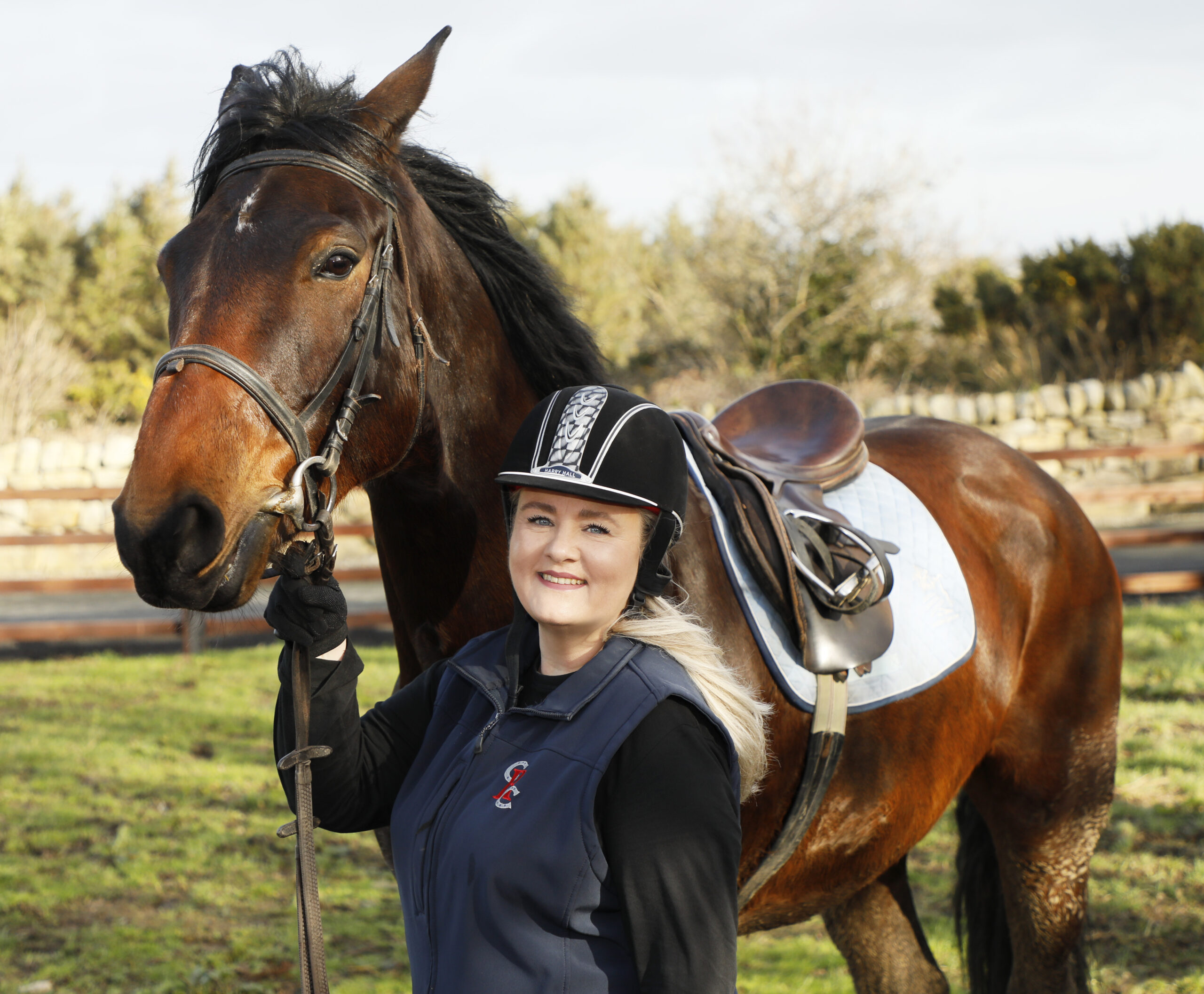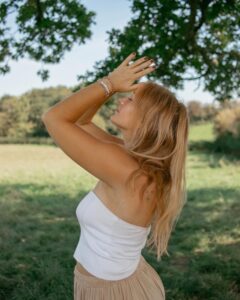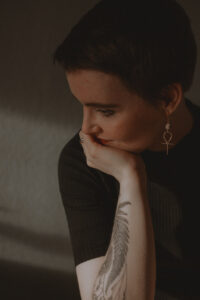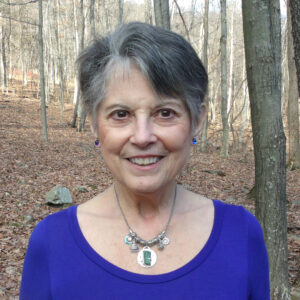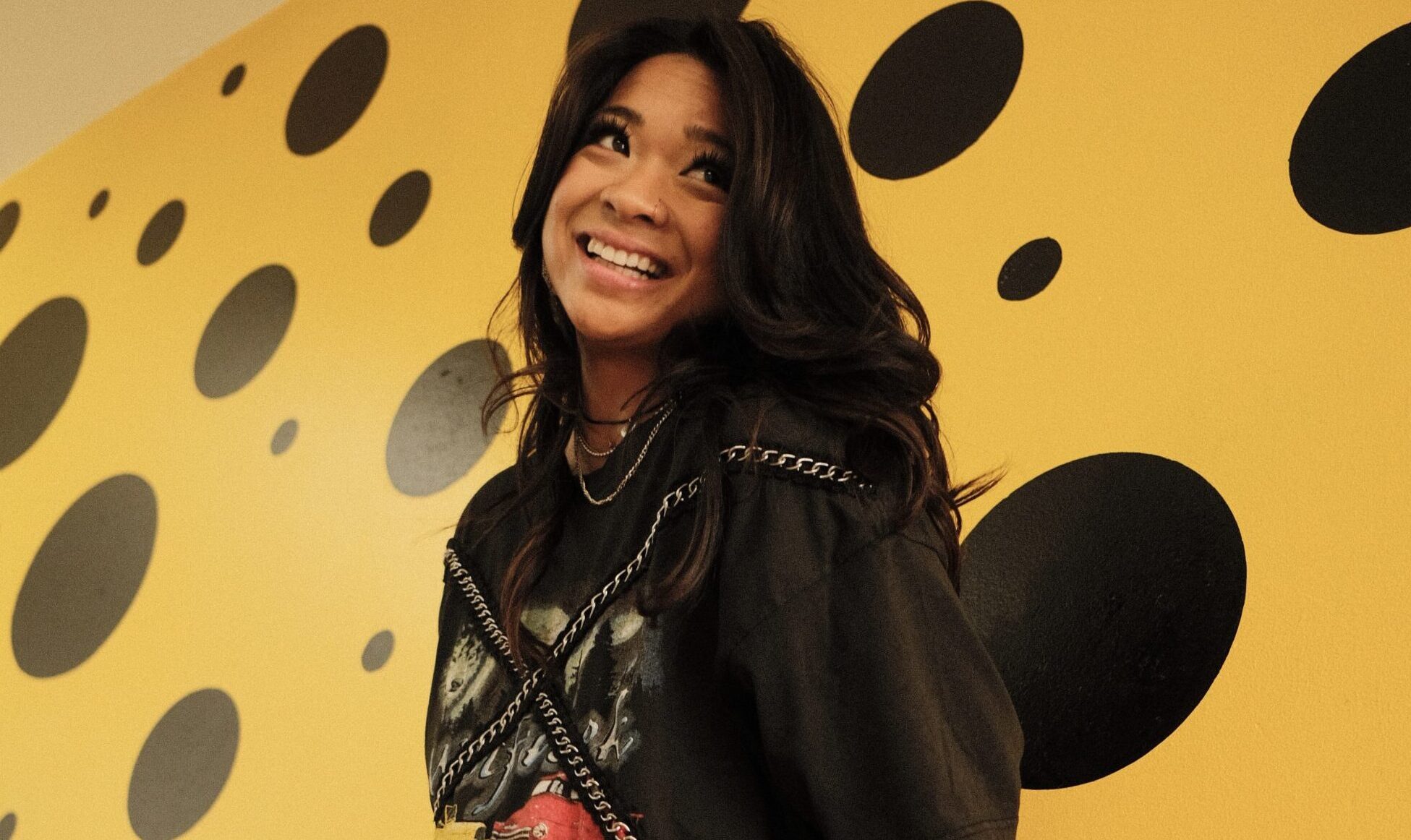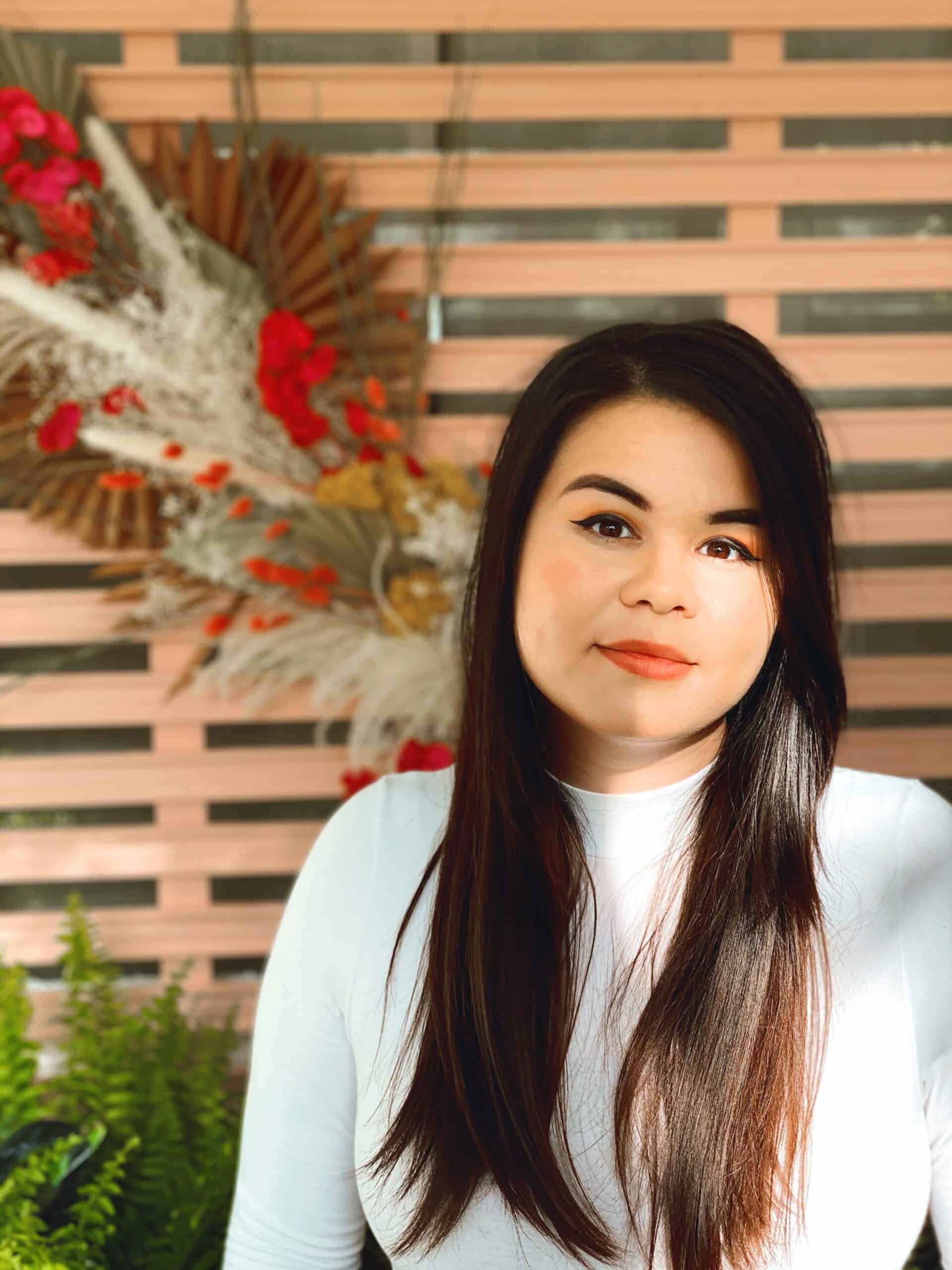Susan Conley’s journey is a testament to the power of resilience and self-discovery. In her memoir, she bravely shares the moment she decided to leave a toxic marriage, a decision that set her on a path of healing and personal growth. Through horseback riding and participation in 12-step programs, Susan found the strength to rewrite her story, reclaim her identity, and embrace a life of empowerment. Her story is an inspiring reminder that no matter how difficult the road, there is always a way forward to a brighter, more fulfilling future.
Can you describe the moment you decided to leave your marriage and how that decision impacted you?
There were two moments. The first was ultimately a test-run of whether or not I could actually do it, following another drug binge on his part: he came down to the kitchen one morning and proceeded to make breakfast for himself. When I asked if any of that was for me, he didn’t even answer. I sat there and watched him eat; afterwards, I prepared for a day out at a press conference, packing my laptop as well as a few bits to stay overnight with a pal, if she’d have me. She did, and after a few weeks I went back to him.
Eight months later we were going to move into a new, bigger place. I had found the house and paid for the deposit. We got the keys and went to have a look around now that it was ours. He was exhibiting all the signs of another drug binge, falling asleep over that meal and when we left, I decided I was done. I cancelled the place, lost half the money I’d put in, and while it would take another month or so before everything was completely sorted, I was free and clear.
How did horseback riding help you in your personal journey of rewriting your story?
Focusing on learning how to ride took my mind entirely off the pain I was in. When someone who struggles with codependency puts themselves and their wellbeing first, for once in their lives, the guilt is oppressive and insistent. It would be my fault if he ended up homeless, it would be my fault if he self-harmed, my fault, my fault.
This litany of self recrimination shut off completely when I was up with the horses. The moment I set foot on the yard, it was all gone, and all my focus went to the horse and the lesson; all my focus went into my body and freed my mind up to learn. Learning something new reawakened the natural confidence I had in myself, that had been battered throughout my relationship. Meeting people who only knew me as ‘a woman learning to ride a horse’ as opposed to ‘a woman with a failed marriage’ was liberating. Every achievement, from learning how to bridle a horse to starting to jump small courses was like a miracle after years of keeping the focus on someone else.
The focus was back on me – in many ways whether I liked it or not – but my growing mental and physical strength gave my the spiritual strength to heal.
What were some of the key lessons you learned from horseback riding that applied to your life?
There are basic behaviors that must be observed when around horses and many have carried over into ‘real life’.
Boundaries are essential and a horse must respect the human’s personal space, otherwise it’s an invitation to get your foot stepped on, which hurts like nothing else in this world.
Horses are prey animals and as such are always vigilant and easy to startle; slowing down physically when around them – no running, no sudden moves – has slowed me down literally and figuratively. I’ve learned there is no need to rush headlong though life, that my pace is only one I need adhere to.
I’ve also learned to tell the truth, to talk about something that’s bothering me whether it’s about my riding or the condition of the horse, to avoid muscling through an issue to avoid making waves, to be direct and focused, and to be honest about my state of being on any given day if I feel like it’s going to affect my confidence.
I’ve also learned how to say no, because I say it often enough to a horse who is testing my limits. The only thing I haven’t learned is how to modulate that ‘no’ for humans – it takes a strong ‘NO!’ to make an impression on a horse. Come to think of it, in certain circumstances, there’s nothing like a horsey ‘no’ to get my point across, so I may not be tempering it after all.
Can you share more about the process of writing your memoir and how it evolved from a simple story to a deeper exploration of your experiences?
I’d started writing the proposal for a humorous, middle-aged-lady thrills-and-spills story based off the lighter-hearted posts from my blog. I’d never written a non-fiction book proposal before and it was brutal, having to lay the whole thing out from beginning to end. It was meant to be straightforward information, but also make it engaging? It was the worst process ever.
I was satisfied with what I’d done and sent it to an agent who had expressed interest in the idea but passed, with the comment that it hadn’t been what she was expecting.
I put it aside for a year… and then when I picked it up again, the first thought I had was: I have to tell the truth. I have to talk about why I did this in the first place, not just the funny things that happened along the way.
Writing that proposal was slightly less arduous, because I had a richer way forward.
What were the most significant challenges you faced while writing your memoir, and how did you overcome them?
Telling the truth! It was so, so hard to look back on my marriage, to relive the low points, even though I’d come so far.
Although having said that, sifting through memories in order to incorporate them in the narrative did help me detach and move on from some lingering resentments.
Ultimately, I overcame the difficulty by using the tools of the program, like detachment, like letting go, like being present and honoring any pain or discomfort. So much damage is done by running away from things or stuffing them down, the writing process helped me gain facility over sitting with, and through, the pain and disappointment.
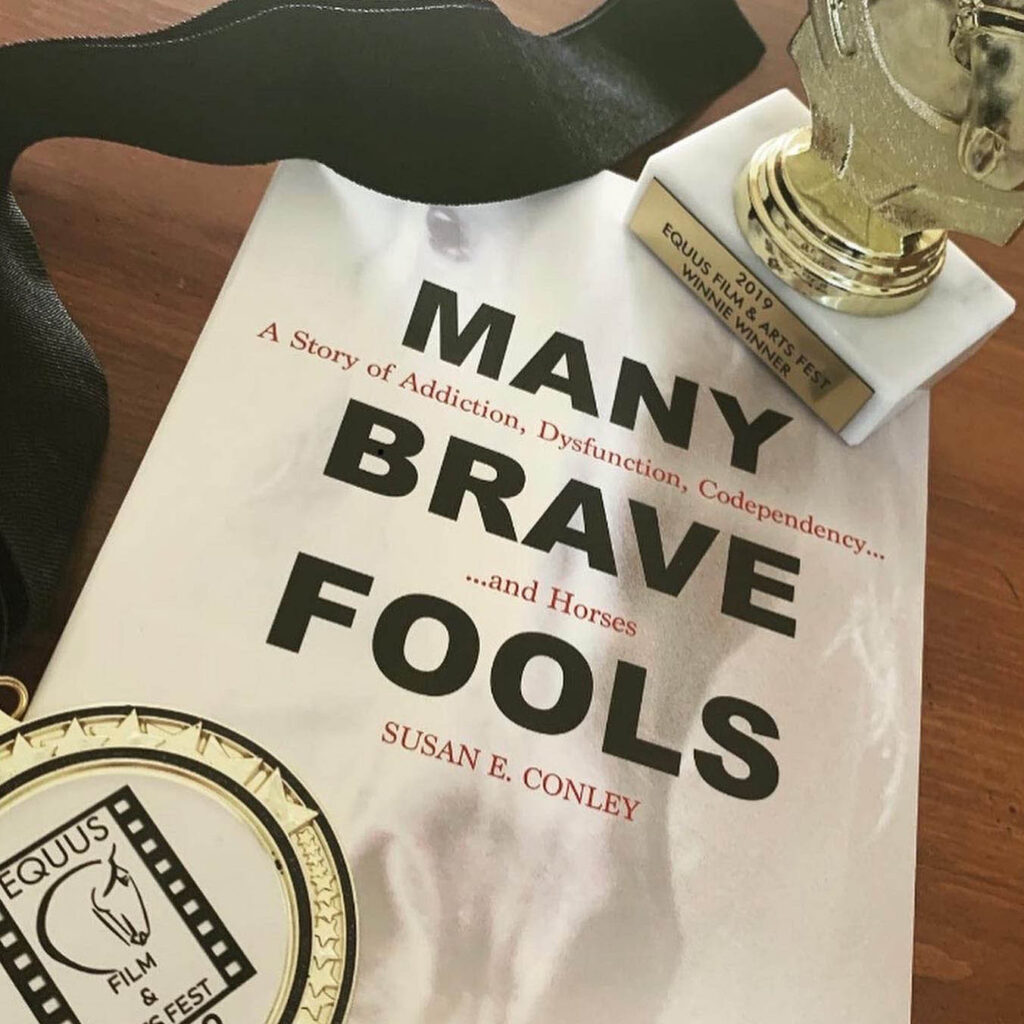
How did participating in 12-step programs contribute to your journey of self-discovery and healing?
I resisted every thought of going into a recovery room and – of course – it was rock bottom that got me there. I had a therapist at the time and I said, ‘I think I should go to Al-Anon’, and she said it sounded like a good idea.
I honestly didn’t really think it was a good idea, but I went.
I went into the rooms to show him that I was going to be good and do this 12 Step thing, and I’d show him who could get better faster.
I went, even though I had surely done enough work one myself: I wasn’t the addict, I didn’t need this! I would only go order to prove a point, the point being I didn’t need it. I wasn’t the problem.
I went to prove a point, and came away with tools for self-growth and healing I will use for the rest of my life.
Ego and pride! Holy wow, they will keep one from growth every time. The gift of humility is unparalleled and is world’s away from humiliation: the latter is the power someone has over you, and the former is the power you have over yourself. I am not perfect and often need this reminder, but it is gets easier and easier to forgive myself every time I slip, and love myself more for my humanity.
Fun fact: ‘humility’ and ‘human’ share an etymological root in humus, meaning ‘earth’ that can be extrapolated to ‘grounded’. Horses have given me the ability to be grounded in the present moment, and there’s a reason all the gurus and self-help books center many of their messages around it: there is nothing like living in the now moment, the creation point of all possibility.
How did you deal with any resistance or doubts you faced during your journey?
No pun intended, but I rode them out!
I rode them out but also didn’t fight them, if that makes sense. Or: I didn’t fight against them, I fought with them. After the first burst of fear or anger or frustration I would do my best to listen to the feeling and then help it move on.
There’s a difference between feelings and emotions that I wrote about in my book: the emotion starts in the body and the feeling tells a story about it, that not only takes into account the immediate reaction, but also every single time (or so it feels, haha) the emotion has been experienced (if you’re me). Which is annoying, but as I got to grips with the process of dealing with my feelings gently, I could discern what core memory was triggered and bring myself back to peace from there.
It sounds like a lot, and it is, in the beginning, but it soon becomes one’s own self-help text. You build on your successes, and can course correct without berating yourself.
Can you provide an example of a breakthrough moment you had while working on your memoir?
One of the main motifs in the book, and one of the foundational movements in horse riding, is the twenty meter circle. It is a learning tool, and also features largely in dressage. It’s used as a way for the rider to learn to guide the horse with the rider’s entire body – inside leg on to help create the shape, outside leg slightly behind the girth to stop the hind swinging out, seat planted but torso turned in the direction of the movement – and as a way to increase the horse’s suppleness in their own body.
When you ride a twenty meter circle in a group lesson, the biggest challenge is riding your own circle and not merely plodding along in the wake of the horse in front of you. Horses are natural followers, so half the work of the circle is ensuring that you are shaping your own. Lesson after lesson, from the outside it might look like it’s just another circle, but the rider knows that there are subtle changes, and hopefully improvements, every time.
Imagine my delighted surprise when I realized that I had been sitting in circles in meetings all this time. These 12 step circles worked a lot in the same way, even if they weren’t as physically strenuous: I did have to stay aware in my body and not drift off mentally; I had to carve my own recovery while also being open to the strength, courage and wisdom of the members; even though it felt, meeting after meeting, that the same words were being said over and over, the structure was comfort and the touchstone upon which to gauge one’s progress.
Putting these two ideas together, and other ideas like them, is the backbone of Many Brave Fools.
What advice would you give to someone who feels stuck in a similar situation and is looking for a way out?
Find your help where you can, but do look toward a support group or a therapist. I know sometimes not feasible to spend the money on one-to-one sessions, but look to the internet and see if you can find a reasonable alternative. It’s tough on your family and friends to be your main support and let’s face it, they can often be invested in you staying stuck. No one fights the breaking of ancestral trauma – and addiction and codependency are the result of ancestral trauma – harder than those who are in grips of it, whose own power resides in it, or those who have made it their comfort zone. It’s an isolating process at times, but like-minded others do the world of good.
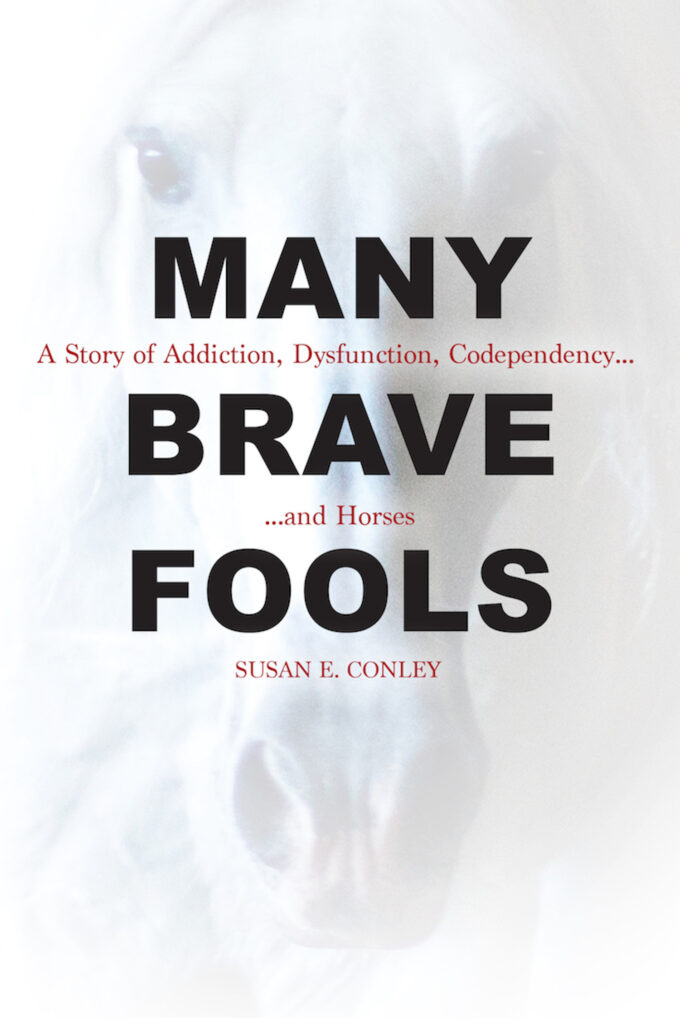
What message do you hope readers take away from your memoir and your journey?
That it isn’t easy to leave a dysfunctional relationship, but that is can be done.
That one’s first instinct to go will not always be acted upon, but can be trusted, and isn’t to be used to berate yourself down the road (“I knew it, I should have left then!”)
That a passionate interest not focused on another human being is a wonderful way to keep the focus on yourself. It doesn’t have to be a sport or a form of exercise, it can be a craft or a language or home renovation – anything that gets you out of the endless past unfurling repeatedly in your head, and into the present moment will help start building resiliency and confidence.
I also hope the message that comes through is that while horses and 12-step helped me heal, there is no one-size-fits-all for recovery. I read eleventy million self help books, I went to so, so many personal development workshops, I learned Reiki, all in an effort to ‘fix’ what was ‘wrong’ with me… When one thing wasn’t the answer, I tried something else. I hope my memoir sparks a thought that leads the reader to follow their bliss, to find a new path of enjoyment and self-esteem, to take as big or as small a risk, or make as big or small a change, that they have been considering.
IG: @manybravefools
W: manybravefools.com
